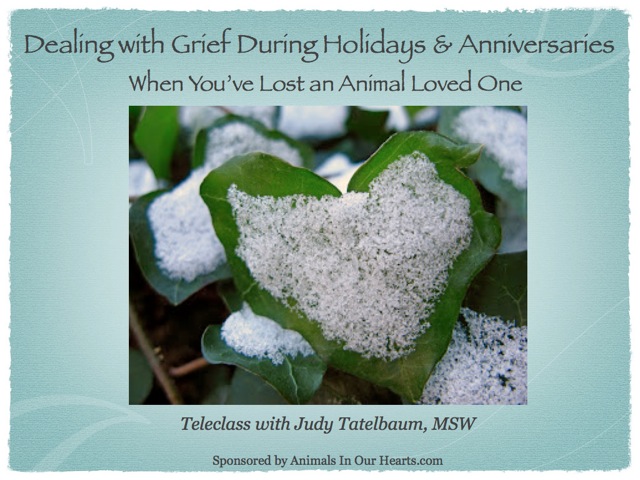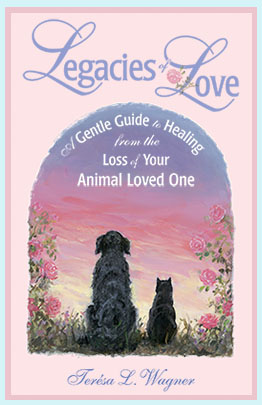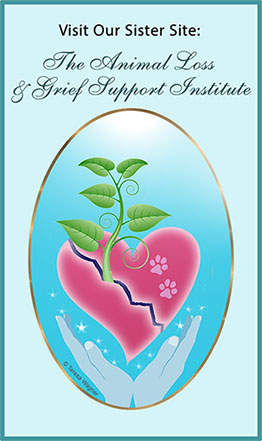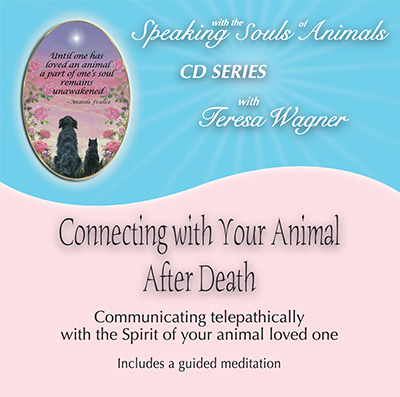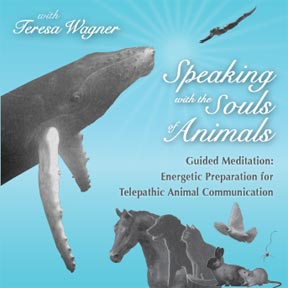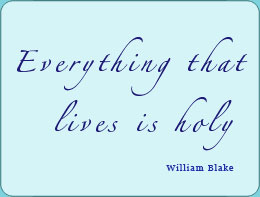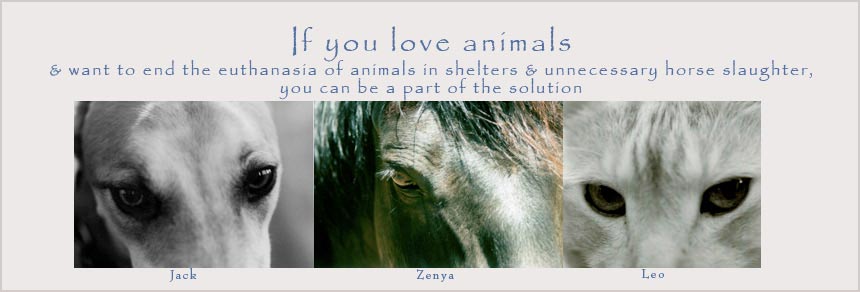Pet Loss and the Holidays: Four Things To Consider When Grieving During the Holidays
copyright Teresa Wagner 2011
Sometimes, holidays can be a very painful time for people who are experiencing their first (or second or third, etc.) special holiday without their loved one who has died. If this is your situation this holiday season, may the following thoughts and ideas help you through this time.
1. If you feel sad, annoyed, impatient, turned off or even angry about the holiday glee around you, that's ok. You're not Grinch, you're grieving. Any and all of your feelings are
normal.
2. Perhaps most importantly, we need to give ourselves empathy and love for our pain, the same way we give tender empathy and love to an animal who is hurting.
3. We need to give ourselves the time and space we need to heal, each in our own way.
4. It empowers us and accelerates our healing when we reflect upon and take stock of the blessings and many gifts we've received from our time with our loved one who has died, and make a commitment to cherish and use those gifts in our continuing life on earth--keeping their legacies alive.
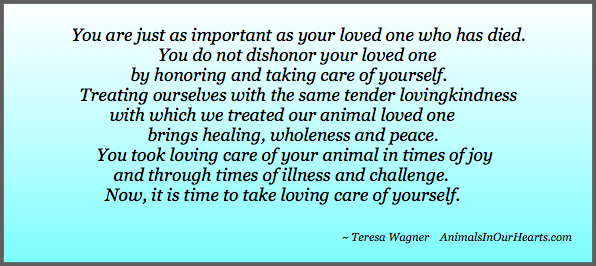
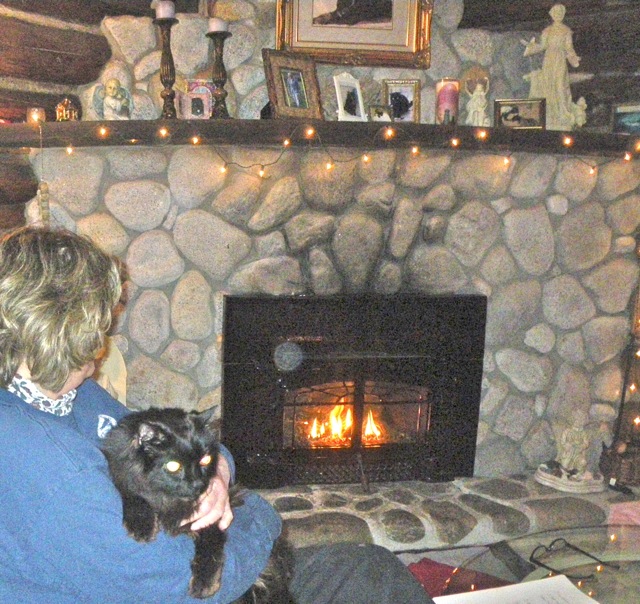 1. If you feel sad, annoyed, impatient, turned off or even angry about the holiday glee around you, that's ok. You're not Grinch, you're grieving.
1. If you feel sad, annoyed, impatient, turned off or even angry about the holiday glee around you, that's ok. You're not Grinch, you're grieving.
Be careful not to criticize or judge yourself for any of your reactions or feelings. Any and all of your feelings are normal. After loss, life is different. Our world is not the same. Sometimes, it can even seem strange that the rest of the world continues, let alone celebrates, because our life may seem to be just standing still, empty, or filled with darkness. It can feel annoying to hear all those cheerful songs on the radio, to see all those frivolous holiday ads and happy ending movies on television. If your heart is broken from missing your loved one this season, seeing and hearing gleeful people and stories around you may seem irrelevant at best and obnoxious at worst. It's hard to feel holiday joy when your heart is broken. This is especially true if those around you do not recognize the loss of your beloved animal as a legitimate and important loss, or a real reason to grieve.
But when we feel alienated, annoyed and heartbroken, what can we do other than stay under the covers or wish the world would just shut up about Christmas and other holidays being a magical time of the year?
2. Perhaps most importantly, we need to seek out and give ourselves empathy and love for our pain, the same way we so easily offer tender empathy and love to an animal who is hurting. Judging what we feel or pretending we don't feel whatever we're feeling--perhaps because others expect us to join in the frivolity and gay festivities--only prolongs our grief by shoving it underground and postpones our healing.
While I am a believer that we all have the power to shift our vibration to feel even just a bit better in a given moment, it's a myth that we can pop ourselves up an emotional scale from profound grief to joy in a nano second and never feel grief again from a devastating loss. And it's quite a harmful myth that grief shouldn't even exist, as espoused by a well known law of attraction teacher who publicly apologized for resisting her husband's death by feeling grief. I cringed when I read this, hoping that not too many would mimic her model that feeling grief is somehow wrong, unnecessary and something to be avoided. Grief is not something to apologize for. It is the most natural reaction in the world in response to the loss of anyone or anything that is meaningful to us. It's what we do with our grief that matters. Pretending we don't or should not feel grief when someone we love dies does not move us toward healing. It places our pain into denial, repressing it only to come out later, perhaps in surprising or dysfunctional ways.
When we receive empathy and acknowledgement for any painful emotion, however, the heaviness of that feeling diminishes, the pain lessens. When we feel understood, when our pain is acknowledged, we feel less distressed or devastated as a result of that support. Empathy is like a fresh breeze of cool air and a long drink of cold water on a hot, sticky humid day--it is comforting, calming and life-giving. There is magic in empathy. It brings hope, and it is also calming and life giving. When we know we are understood, we feel empowered. We feel acknowledged, real, stronger and better equipped to continue healing and engage in life.
On the other hand, when we are told by others or tell ourselves that we "should not feel that way," that we should "let go of grief and be joyful because, after all, we know our loved one is happy and well in heaven" or "there really is no separation since we know their spirit is alive" it feels more like someone slams the windows shut in a room that is already overly hot and stuffy. It becomes even harder to breathe. We feel more alone and certainly not understood.
To take charge of our healing we need to seek out resources of support that resonate with us--such as people, places, books, web sites, classes and/or meditations that bring us the energy of empathy and acknowledgement for our loss and our grief. Sometimes the greatest support we receive when grieving may not be from our family or inner circle but from those we do not know well in our daily lives. And sometimes the kind of support to which we feel drawn are things we may never have explored before. That's OK. The type of support and where it comes from doesn't matter. What matters is that we seek it, embrace it and allow it to help us heal.
It helps to avoid people who seem unable to accept that our grief process is "unfinished" or that we haven't "moved on" (you know, those people who think that after a few weeks we should be over it and go get a new puppy already). People who are uncomfortable with our grief may throw platitudes at us as if a spiritual or psychological phrase or two (from their belief systems) will make everything OK. When such people cannot be avoided, try responding with phrasing such as, "I appreciate you're trying to help me. I am working through this in my own way, with my own beliefs, in my own time." When that doesn't work, don't be afraid to be more direct and say, "I don't find platitudes to be of help, or to have others tell me what they believe or what works for them. Again, I am working this through in my own way, with my own beliefs. Your acknowledging my loss is enough, thank you."
Though it is sometimes necessary to set boundaries with people who may be offensive, and it's incredibly healing to receive empathic support from those who give it, what about giving ourselves empathy?
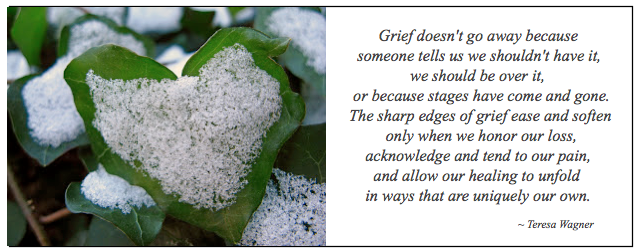
A first step is to give ourselves the empathic gifts of patience and acknowledgement. We would most probably never say to a beloved animal who is injured or in physical pain, "Gee, just get up and walk already!" Rather than imposing such a heartless edict to hurry up and heal, we would be more likely to place our hands, our love, and our healing energy and prayers onto a beloved animal who is in physical pain to offer our support and help as they heal in the wisdom of their soul's own timing. We need to offer this same gentle lovingkindness onto our own emotional pain, as we heal in the wisdom of our own soul's timing.
Listen to the feelings in your own heart and honor them. And for every feeling that comes into your awareness, tell yourself how normal it is to feel that way, then gently pour love and empathy onto those feelings. You might want to close your eyes, place your hands on your heart, and visualize love from your own hands entering your heart, surrounding your grief and pain with soft yet powerful love. Picture your pain shifting from jagged, harsh edges to soft, smooth curves. Picture your pain calming and shifting from a blackness to your favorite calming color, perhaps soft pink, soft blue green. . . Care for your breaking heart with as much devotion as you likely have your own animals when they were ill.
Empathy and love from others is powerfully validating, yet we cannot control the consistency of others' actions of support. We can control our own thoughts and feelings about ourselves. Empathy for ourselves, for our pain of grief, is a powerful act of self love. Showering your grief (and all feelings related to your loss) with empathy and love will not erase your grief, but it can greatly reduce the energy of suffering and invite in the energy of grace.
Think about this: You deserve to be loved as much as your animal loves you. Learn to love yourself as much as your animal loves you.
3. We need to give ourselves the time and space we need to heal, each in our own way.
We all have different personality types with varying levels of preference regarding being with people and being with ourselves. There is no one right way to handle socializing during the holidays when we are grieving. Some people feel energized, rejuvenated and healthily distracted from their grief by being with others and attending parties and gatherings. Yet for others, just the thought of putting on a happy face and going to social events is daunting. Neither is right or wrong. We need to listen to our own hearts about what we need and then do that, even if this means others may not understand. This is a time to take care of ourselves, in the ways we know are best for us.
A few years ago, when one of my cats died very unexpectedly just a few weeks before Christmas, I knew I needed time alone. Though I am grateful that I was able to be fully present and intimate with him through his last days and his death process, the aftermath seemed unbearable. I felt a deep need to spend time alone and in reflection. During all of my non-work hours, I spent days and weeks sitting quietly in front of the fire with my other cat, looking through photos and alternately meditating, talking with him, and crying out my tears. Sometimes I watched movies or read novels just to escape the intensity of the pain. I made an altar with his ashes, photos, candles and the loving sympathy cards sent after his death. My cat Olivia, who was grieving as deeply as I was, spent time both on my lap and by her brother's ashes (which at her request I took off the mantle alter and placed on the floor because she loved to rub her face against the sacred box of his ashes). We grieved together. 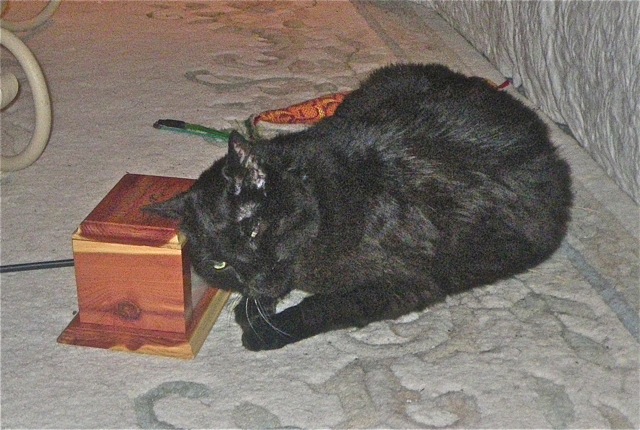 Olivia, who purred and rubbed her face over her brother's box of ashes
Olivia, who purred and rubbed her face over her brother's box of ashes
I did not have it in me to celebrate a holiday and go to parties and dinners. My feline son had died very abruptly and unexpectedly and my world was way off its axis. So I took all the time I needed to be alone, to go within and begin to heal. This is not to say that everyone should do this, or that I will always feel called to have so much alone time every time I experience a loss. With previous losses, I have held both large, celebratory memorial services and small, intimate services. Not only does every person and animal grieve in their own unique way, but every situation of loss is different. Listen to your heart about what you need at any given time, and follow it.
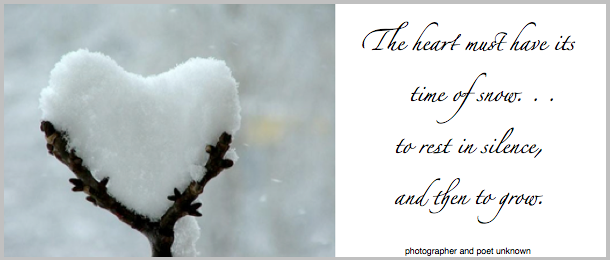
If you are a family member, friend or loved one of someone who has experienced loss, one of the greatest gifts you can give them during the holidays is to ask them what they are most comfortable with regarding time together, regarding socializing and the need for time alone. Support them if and when they decide to spend time alone rather than socializing. Don't take it personally! And don't attempt to impose on them what you would do, or what you think they should do. This is their loss. Find out what they need and support them accordingly. And when you are with someone in a social situation who is grieving a loss, make an acknowledgment of their loss rather than pretending it did not happen. Honor their loss. Honor the relationship they had with their loved one. Make a toast in a group if appropriate, or make a kind and loving comment in private. You don't have to fix anything or espouse your beliefs about where their loved one is, why death happens or how they will or should heal (in fact, please don't do any of this--it doesn't help unless they have asked for your opinions). Merely acknowledging their loss, telling them that you care and will support their desire for social or alone time is a great gift.
4. It empowers us and accelerates our healing when we reflect upon and take stock of the blessings and many gifts we've received from our time with our loved one who has died, and make a commitment to cherish and use those gifts in our continuing life on earth--keeping their legacies alive.
As heavy and endless as our grief may feel, in the overall timeline of the years with our loved one, their death and our grief from their death is only one chapter of many that we've had together. It is very empowering and healing to take time to reflect upon all the chapters we've had together--the memories, the learning and the lasting gifts from all the days of our lives together. One way to honor our relationship is to identify and acknowledge all we've received from it. This, of course, does not erase our grief but it does place it into the context of the broader wholeness of our life.
One of the rituals we do in my Legacies of Love workshops is called What I've Lost, What I Still Have and The Legacies I've Received and How I'll Use Them. The purpose of this process is to help us view and consider a "complete" picture of our loss and grief in the context of our life at this time. We have lost something of inestimable value. Yet we also still have much for which to be grateful, much that we can still cherish. And, we have still have much we can create with the gifts we've gained from our time together on earth.
Reflect upon the gifts and legacies left you by your loved one, and how you can invest them in your life. Almost every client I've ever worked with tells me that the greatest gift they received from their animals was love. But in addition to receiving love, there are other stories about learning patience, receiving joy, learning to feel worthy of love, learning about non-judgement, courage, perseverance, commitment, learning that they could be a good parent and much more.
Some people I've worked with have made sweeping changes in their life as a way to create a legacy in honor of their animal. One woman started a pet loss support group, another started a rescue organization. These are laudable efforts and are helping untold numbers of people and animals. However, not all legacies and how we use them are public. Most, actually, are private and may be known only to the person themselves. One woman told me about how she learned to listen from the example of her cat and decided that she would learn more about listening more attentively to both her other cats and to the humans in her life. Another person told me about how she learned about patience from her dog and courage from her horse. She was so moved by their examples that she considered this learning a great legacy from them, and was committed to practicing more patience and courage in her own life. Every legacy is unique. The important thing is to use them, to integrate them into our daily lives to honor both our animals and ourselves.
May these ideas fill you with courage and love to not only cope with and survive these special holiday seasons and days, but to also find meaning, solace and connection with the spirit of your animal loved ones.
For more help with this issue, you may want to purchase our on demand teleclass: Dealing with Grief During Holidays which includes two hours of digital audio recording and an 17 page handout package with detailed lists and descriptions of ritual and memorial ideas and links to many resources, as well as a separate recording of a guided meditation.